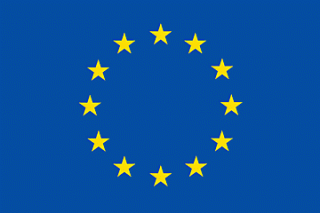New EU rules to help victims of domestic abuse
 ‘Rights of victims of violence now guaranteed outside their own country’.
‘Rights of victims of violence now guaranteed outside their own country’.
Victims of violence, especially those who have suffered domestic abuse or stalking, will be guaranteed better protection in any state which is a member of the European Union now, due to new rules which entered into force on 11 January.
New rules which mean that restraining, protection and barring orders issued in one member state are now quickly and easily recognisable across the European Union (EU) through simple certification.
The European Commission wanted to ensure that any citizen who has suffered domestic abuse is be able to feel safe to travel outside their home country.
This has now been made possible by making transferring the order that protects them from the offender possible.
Previously, victims had to go through complex procedures to get their protection recognised in any other member states – and go through a different procedure for certification in each country.
“The new procedure will mean that women or men who suffer violence can have the protection they deserve and go on with their lives,” Věra Jourová, the EU’s Commissioner for Justice, Consumers and Gender Equality, explained.
“They will be able to choose to live in another EU member state or to travel on holiday without fearing for their safety.”
The new mechanism consists of two separate instruments: the ‘Regulation on mutual recognition of protection measures in civil matters’ and the ‘Directive on the European Protection Order’.
Together, these two will ensure that all victims of violence will be able to get their protection orders recognised in any EU member state, and ensure free circulation of the most common types of protection measures within the EU.
The mechanisms reflect the differences in the member states’ national protection measures, which can be of civil, criminal or administrative natures.
The need for support and protection of victims was backed up by a report published recently by the EU Agency for Fundamental Rights (FRA), which concluded that more targeted victim support services were needed in the European Union.
Because despite recent improvements, challenges did still remain for victim support services in many member states.
Specific suggestions for improvement include ensuring victims have access to targeted support services, for example: trauma support and counselling, the removal of bureaucratic hurdles so victims have access to legal aid, and ensuring that people have information about their rights and the services that are available.
“Rights of the victims of violence will now be guaranteed outside their own country too, wherever they are in Europe,” Jourová said.
“In the EU, an estimated one in three women face violence at some point in their life and unfortunately most often this physical violence comes from someone close to the person, such as their partner.”
The rules establishing minimum rights for all victims, ‘Directive 2012/29/EU on common minimum standards on the rights, support and protection of victims of crime’, include women as victims of gender-based violence, and aim to ensure that:
They are treated with respect by well-trained police, prosecutors and judges and get understandable information on their rights;
They can get specialised support in all European Union countries;
They can participate in proceedings and have certain rights (such as the right to be heard, the right to legal aid, the right to interpretation and translation, and the right to review a decision not to prosecute; and
They are protected from secondary and repeat victimisation, from intimidation and from retaliation during police investigations and court proceedings e.g. by limiting the number of interviews and medical examinations to a minimum, by ensuring special measures to avoid visual contact with the offender during court proceedings.
The European Commission also organises regular exchanges between countries of best practices so that EU countries can learn from each other about successful policies, find ways to overcome common obstacles and improve their approaches.
These include exchanges on awareness-raising campaigns, using new technologies to better support and protect victims, and on putting in place treatment programmes for male perpetrators.
The European Commission also funds numerous awareness-raising campaigns in EU countries and supports grass-roots organisations, NGOs and networks working to prevent violence against women.
The main funding programmes are DAPHNE III and PROGRESS. As from 2014, provision of funds will continue with the Rights, Equality and Citizenship Programme, supplemented by funds related to the Justice Programme.
One of the examples of recent projects has been the Cypriot government receiving funding in 2013 to give training to professionals who are in contact with victims e.g. the police, law enforcement officials, social workers and journalists.
The Commission has also been supporting the activities of the European Women’s Lobby (EWL), the largest network of women’s organisations in the EU, which works to promote women’s rights and gender equality, and to combat all forms of male violence against women since 1990, as well as Women Against Violence Europe (WAVE), a network of European women’s NGOs working to combat violence against women and children, in particular focused on improving victim support for the last 7 years.















